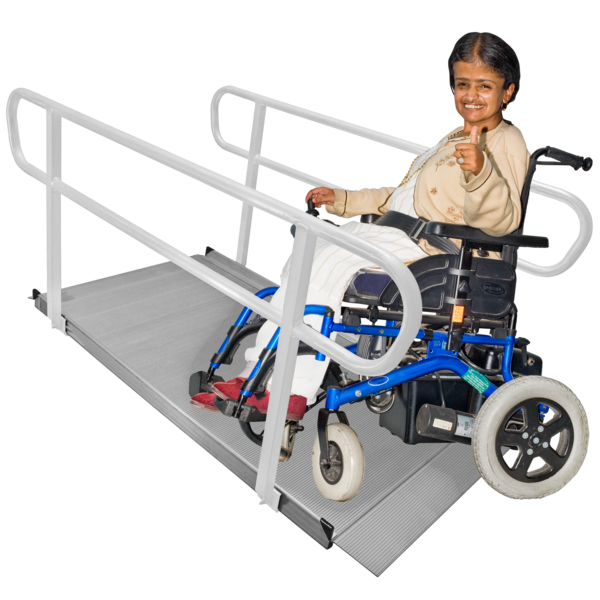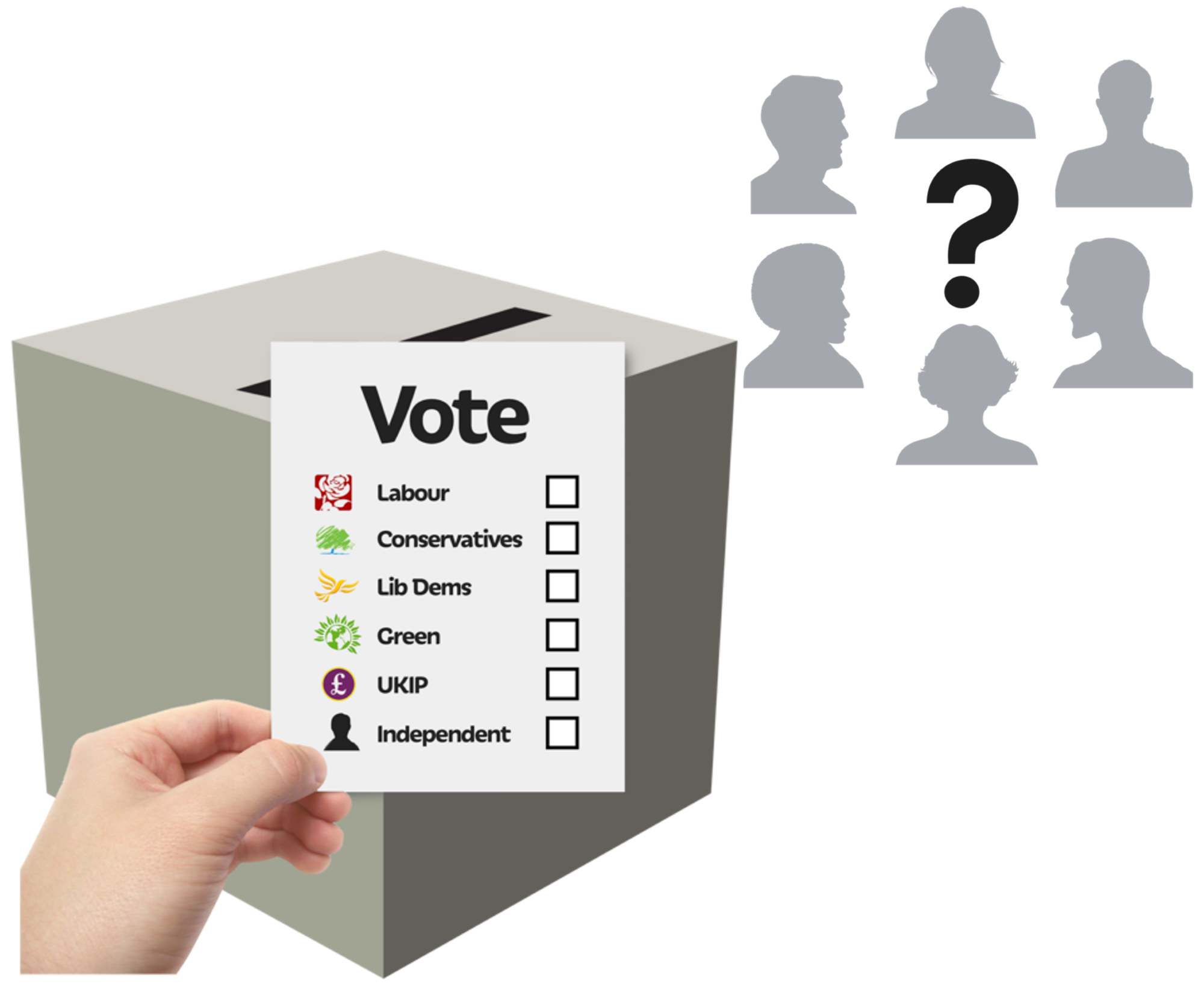Today, the main five national political parties have launched
accessible
 Accessible means something is easy for people to use or join in with. For example: Accessible writing means the writing is easy to read and understand.
versions of their party manifestos for people with a
learning disability
Accessible means something is easy for people to use or join in with. For example: Accessible writing means the writing is easy to read and understand.
versions of their party manifestos for people with a
learning disability
 A learning disability is to do with the way someone's brain works. It makes it harder for someone to learn, understand or do things.
.
A learning disability is to do with the way someone's brain works. It makes it harder for someone to learn, understand or do things.
.
The
Easy Read
 Easy Read is a way of making written information easier to understand. Pictures are usually added next to the writing.
manifestos use simple language and pictures, which make it easier for people with communication difficulties to understand what each party stands for.
Easy Read is a way of making written information easier to understand. Pictures are usually added next to the writing.
manifestos use simple language and pictures, which make it easier for people with communication difficulties to understand what each party stands for.
The Conservatives, Labour, Liberal Democrats and UKIP have worked with Mencap to produce the Easy Read manifestos, with the Greens also producing an accessible version of their manifesto. All five manifestos have gone live on Mencap’s
website
 A website is a page you can go to on the internet like Google or YouTube.
today: www.mencap.org.uk/easymanifestos
A website is a page you can go to on the internet like Google or YouTube.
today: www.mencap.org.uk/easymanifestos
In response to a UK-wide call from people with a learning disability and their families for more accessible information about what the parties in this year’s General
Election
 An election is when people choose who should be in charge of something. This could be in charge of a group, an area, or the country. People choose by voting. The person with the most votes wins.
stand for, Mencap’s Parliamentary Affairs Assistant, Ismail Kaji, wrote to all of the Party Leaders to ask them to produce Easy Read manifestos.
An election is when people choose who should be in charge of something. This could be in charge of a group, an area, or the country. People choose by voting. The person with the most votes wins.
stand for, Mencap’s Parliamentary Affairs Assistant, Ismail Kaji, wrote to all of the Party Leaders to ask them to produce Easy Read manifestos.
Ismail Kaji, who has a learning disability, and is Parliamentary Affairs Assistant for Mencap, said:
"I am really pleased because I wrote to all the party leaders last year asking them to produce an Easy Read version of their manifestos.
"Many people with a learning disability did not vote in the last election and we want to change that. Lots of people with a learning disability who didn’t vote in the local elections last year said that they didn’t know which party to vote for. This is no surprise as politicians use really complicated language and jargon that is hard to follow.
"The Easy Read manifestos use simple language and pictures, which make it easier to understand what each party is promising. This will mean that people with a learning disability feel more valued and included and understand why their vote counts.
"They can then make their own choice about who they want to vote for at the General Election on Thursday 7 May 2015. Our voices matter. Together, people with a learning disability and our families can make a difference.
"Research for Mencap’s Hear my voice general election campaign
A campaign is when people work together to try to change something. * shows that people with a learning disability have a political appetite and want to vote, but many are excluded from the process and aren’t able to exercise their democratic right.
"This culture of inaccessible politics discouraged 64% of people with a learning disability from voting in local elections last May. Of those who didn’t vote, over half (56%) said they didn’t want to vote for any of the political parties because they didn’t understand what they stood for."
One of these individuals was 28-year-old Vijay Patel. Vijay felt excluded from politics because of the complex language that politicians use:
"I wasn't sure who to vote for in the last general election as all of the parties were against each another and used big words with lots of jargon. The government needs to make sure their information and policies are in easy read for people to understand what they’re talking about. I’m looking forward to reading the Easy Read manifestos and making sure my vote counts!"
Lorainne Bellamy, who has a learning disability, works at Mencap. Lorainne read the Easy Read manifestos before they were finalised, to make sure that they were as accessible and informative as possible. She said:
"I went through some of the manifestos to check to see if they were in Easy Read. I read through the Labour and UKIP manifestos. One manifesto had a summary that was at the beginning, and it was very good because it explained some of the long words.
"It is important to have the manifestos in Easy Read because the words they use are not accessible. I would like to vote, so I need to understand who I am voting for."
Mencap’s Hear my voice campaign is encouraging people with a learning disability, their families and carers to tell their local candidates what matters to them and what they want to see change under the next government. To date, over 1,000 people have shared their stories with their local candidates.
More than 460 political candidates have signed-up to the Hear my voice campaign to say they are listening to the voices of people with a learning disability.
You can find out more about the campaign here: www.hear-my-voice.org.uk
-ENDS-
For more information, please contact the Mencap press office on 020 7696 6950 or media@mencap.org.uk
Notes to editors
About Mencap
There are 1.4 million people with a learning disability in the UK. Mencap works to support people with a learning disability, their families and carers by fighting to change laws, improve services and access to
education
 Education is when you learn things. When you fill in a form to get a job, education means you write where you went to school, college or university.
,
employment
Education is when you learn things. When you fill in a form to get a job, education means you write where you went to school, college or university.
,
employment
 Employment means having a job.
and
leisure
Employment means having a job.
and
leisure
 Leisure is when you have time to do things you enjoy like playing sports or going to the pub.
facilities. Mencap supports thousands of people with a learning disability to live their lives the way they want.
Leisure is when you have time to do things you enjoy like playing sports or going to the pub.
facilities. Mencap supports thousands of people with a learning disability to live their lives the way they want.
For advice and information about learning disability and Mencap services in your area, contact Mencap Direct on 0808 808 1111 (9am-5pm, Monday-Friday) or email help@mencap.org.uk
About Mencap’s Hear my voice campaign
People with a learning disability – and the millions of family members, carers and support workers connected to them – can make their voices heard on the issues that matter to them at the 2015 General Election.
Hear my voice is a campaign designed to provide a platform for people with a learning disability and their families to make their voices heard. There are a lot of different ways to get involved, from sharing what matters to you, to holding an event to get people with a learning disability registered to vote. Through grassroots campaigning, Hear my voice will ensure the next Government improves the lives of people with a learning disability.
About learning disability
A learning disability is a reduced intellectual ability, which can cause problems with everyday tasks – for example shopping and cooking, or travelling to new places – which affects someone for their whole life.
People with a learning disability can take longer to learn new things and may need support to develop new skills, understand difficult information and engage with other people. The level of support someone needs is different with every individual. For example, someone with a severe learning disability might need much more support with daily tasks than someone with a mild learning disability.
Learning disability is not a mental illness or a learning difficulty, like
dyslexia
 Dyslexia is a learning difficulty. People who have dyslexia can find it hard to read, write and spell.
. Very often the term ‘learning difficulty’ is wrongly used interchangeably with ‘learning disability’.
Dyslexia is a learning difficulty. People who have dyslexia can find it hard to read, write and spell.
. Very often the term ‘learning difficulty’ is wrongly used interchangeably with ‘learning disability’.